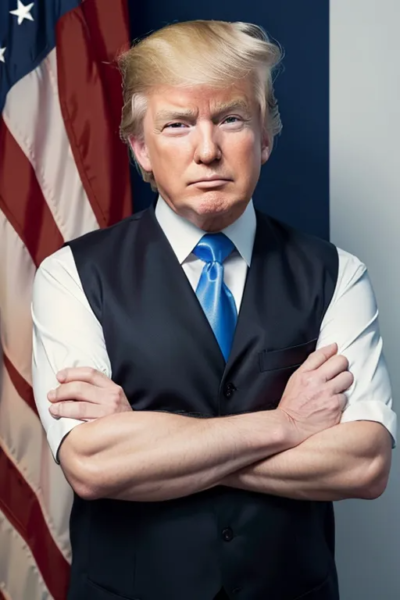Attempted Assassination of Trump: Inflammatory Liberal Rhetoric

The rise of inflammatory rhetoric in American politics is pushing the nation toward dangerous levels of polarization. Threatening the very stability of the American Republic. The recent assassination attempts on Donald Trump highlight how political violence, once unthinkable, is becoming increasingly normalized. This nation was founded on the principles of free speech, peaceful debate, and the rule of law. The escalation of political violence should be a wake-up call. A wake-up call for every American, regardless of their political affiliation.
Assassination Attempts on Trump
Two recent assassination attempts on Donald Trump have shocked the country. They are symptoms of a growing trend of extremism in our political landscape. These attempts, though unsuccessful, serve as a warning sign. A warning that the current state of political discourse in America is spiraling out of control.
Sharp divisions between Donald Trump’s supporters and detractors have defined both his presidency and post-presidency. While many view Trump as brash, his opponents have responded with equally intense reactions. With some crossing the line into dangerous territory. The violence itself is concerning. Even more concerning is how such extreme actions are becoming more acceptable in political debate. Violence as a political tool erodes the very fabric of democracy and paves the way for further chaos.
These assassination attempts are symptoms of a larger issue. They are indicative of a deeper problem within American society. The media now labels political opponents as existential threats rather than simply disagreeing with them.
Inflammatory Rhetoric’s Role in Assassination Attempts
Inflammatory rhetoric has fueled the escalating tensions that led to incidents like the assassination attempts on Donald Trump. Recently, political leaders, commentators, and even ordinary citizens have increasingly used extreme language. Language that demonizes those who hold different views. Instead of healthy debate and civil discourse, the narrative has shifted toward outright hostility.
The media and social media platforms play a significant role in amplifying this rhetoric. Mainstream outlets and influencers often prioritize sensationalism, knowing that extreme and divisive headlines attract more attention and generate higher profits. Similarly, social media algorithms reward engagement, meaning the most outrageous or inflammatory posts are often those that get the most visibility.
This creates a dangerous feedback loop, where inflammatory speech becomes more frequent and acceptable, pushing individuals further into ideological extremes. When people are repeatedly told that their political opponents are not just wrong, but dangerous and even evil, it is only a matter of time before someone believes that violence is a justified response. The political polarization in America has become so intense that rational debate is increasingly rare, replaced by an “us versus them” mentality.
It is essential to remember that inflammatory rhetoric does not occur in a vacuum—it has real consequences. The shift from verbal attacks to physical violence is not a long leap, as seen with the assassination attempts. When public figures use language that dehumanizes their opponents, they create an environment where violence seems like an acceptable solution to political disagreements.
Threat to the Republic
The rising tide of political violence poses a direct threat to the American Republic. A functioning democracy depends on the peaceful exchange of ideas and the rule of law, not on intimidation, coercion, or violence. The very foundation of the American Republic—our Constitution and democratic processes—relies on the ability to disagree civilly and resolve conflicts through established legal and political channels.
When violence becomes part of the political equation, it undermines trust in the democratic system. The assassination attempts on Donald Trump are part of a broader pattern of violence, from protests turning into riots to attacks on elected officials. These actions signal a shift away from democratic principles toward an era where force replaces debate.
This trend erodes the cornerstone of American democracy: the peaceful transition of power. When people feel their political goals can only be achieved through violence, the country is pushed closer to the brink of instability. If political polarization continues unchecked, America may face not just more acts of political violence, but a full-blown constitutional crisis.

Stopping Future Assassination Attempts
The solution to the problem of political violence begins with recognizing the corrosive effects of inflammatory rhetoric. Political leaders, commentators, and citizens all have a responsibility to dial down the hostility and commit to more responsible speech. Political leaders, especially, must set an example by engaging in civil discourse rather than contributing to the cycle of inflammatory attacks.
The media must also play its part by focusing on responsible reporting rather than sensationalism. The drive for ratings and clicks has contributed to a polarized environment where extreme viewpoints dominate the conversation. News outlets should prioritize context, fairness, and factual reporting, avoiding the temptation to fan the flames of division for short-term gain.
Social media platforms, too, have a critical role in reducing the spread of divisive content. While it is challenging to balance free speech with responsibility, companies like Facebook and Twitter must consider how their algorithms contribute to the radicalization of individuals and the spread of political violence.
The assassination attempts on Donald Trump are a symptom of a larger problem in American society—the rise of inflammatory rhetoric and the increasing acceptance of political violence. If these trends are not reversed, the American Republic will face significant risks, potentially leading to the breakdown of our democratic institutions.
Political leaders, the media, and citizens all must commit to restoring civil discourse and rejecting violence as a means of resolving political differences. Only by doing so can we safeguard the future of the American Republic and ensure that our democratic values endure.
Ultimately, the American people must also reject the notion that political opponents are enemies to be vanquished. The future of the American Republic depends on our ability to recognize the humanity in those who hold different views. Rebuilding a culture of civil debate and mutual respect is essential to avoiding further violence and preserving the stability of our democracy.
